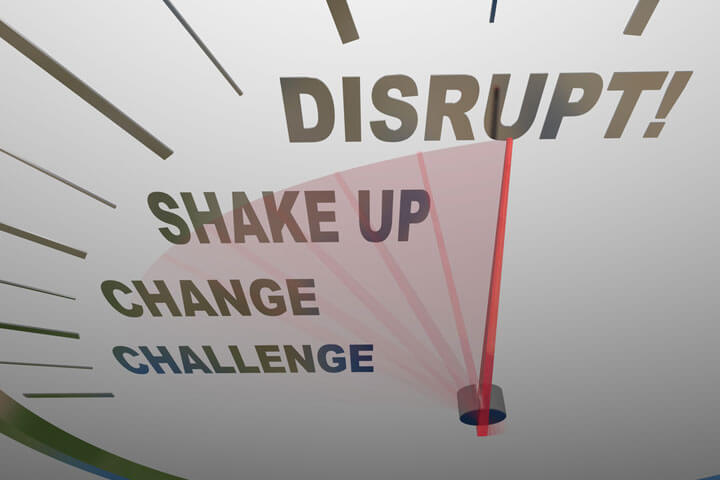Meinung
17 Tweets von Marc Andreessen – über Disruption

Bereits 1995 prägte Professor Clayton M. Christensen den Begriff Disruptive Technologies. Momentan ist gefühlt alles eine disruptive Technologie. Marc Andreessen, Mitgründer von Netscape Communications und Entwickler von Mosaic, einem der ersten Webbrowser, teilt uns nun seine Ansicht der Dinge. “In his latest onslaught of tweets, Andreessen this morning first quoted from Christensen’s writings and then went on to provide examples. And then he went on to show why people really should be in favor of disruption”, schreibt VentureBeat. Hier seine 17 Tweets.
1/Few intellectual concepts in our time have been mangled by observers more than Clay Christensen's disruption idea. Some thoughts:
— Marc Andreessen (@pmarca) 2. Dezember 2014
2/CC: "A disruptive innovation gives new consumers access to product historically only available to consumers with a lot of money or skill."
— Marc Andreessen (@pmarca) 2. Dezember 2014
3/CC: "Disruptors offer a different set of product attributes valued only in new markets remote from, and unimportant to, the mainstream."
— Marc Andreessen (@pmarca) 2. Dezember 2014
4/The key attribute of disruptive innovation is a new product for a previously underserved market–typically cheaper than existing product.
— Marc Andreessen (@pmarca) 2. Dezember 2014
5/This is inherently pro-consumer: Disruptive innovation only works if customers buy it–and if they do, lives improved vs prior status quo.
— Marc Andreessen (@pmarca) 2. Dezember 2014
6/Similar, disruptive innovation is only funded by investors who believe underserved market exists, customers will buy it, lives improved.
— Marc Andreessen (@pmarca) 2. Dezember 2014
7/It's a fabricated myth that disruptive innovation is about destruction: It's about creation–new products, new choices, for more people.
— Marc Andreessen (@pmarca) 2. Dezember 2014
8/Later, of course, new product often evolves to squarely take on incumbents serving established customers–cheaper & better for them too!
— Marc Andreessen (@pmarca) 2. Dezember 2014
9/Disruptive innovation shrinks inequality, by bringing to lower-income consumers things that only richer consumers had access to before.
— Marc Andreessen (@pmarca) 2. Dezember 2014
10/If you are reading this, many of the things you own that make your life better are the result of prior disruptive innovation.
— Marc Andreessen (@pmarca) 2. Dezember 2014
11/Printing press disrupted books from scribes; recorded music disrupted live concerts in homes, washing machines disrupted live-in maids.
— Marc Andreessen (@pmarca) 2. Dezember 2014
12/Rich people always had books, music, clean clothes, etc.; disruptive innovation made these things available to many more people.
— Marc Andreessen (@pmarca) 2. Dezember 2014
13/In exact same way, sub-$50 smartphones as disruptive innovation to PCs bringing computing & Internet to far more people than status quo.
— Marc Andreessen (@pmarca) 2. Dezember 2014
14/To be FOR disruption is to be FOR consumer choice, FOR more people bring served, and FOR shrinking inequality.
— Marc Andreessen (@pmarca) 2. Dezember 2014
15/To be AGAINST disruption is to be AGAINST consumer choice, AGAINST more people bring served, and AGAINST shrinking inequality.
— Marc Andreessen (@pmarca) 2. Dezember 2014
16/If we want to make the world a better and more equal place–the more Christensen-style disruption, and the faster, the better!
— Marc Andreessen (@pmarca) 2. Dezember 2014
17/References: http://t.co/9dbASWMYgt, http://t.co/IZnvsmiQ71, http://t.co/9L6ZKjiAgS
— Marc Andreessen (@pmarca) 2. Dezember 2014
Passend zum Thema: “Was ist disruptive? – Strategien und Denkansätze für Start-ups”











